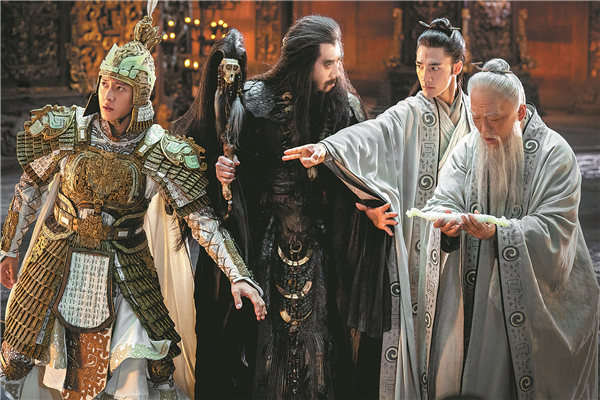

A native of the Inner Mongolian autonomous region, Wuershan reminisces about his initial encounters with the Fengshen Yanyi tales in comic books.
As time went on, he delved deeper into the stories by immersing himself in the Ming Dynasty novel, Western Han Dynasty (206 BC-AD 24) historian Sima Qian's Shiji (Records of the Grand Historian) and Wuwang Fazhou Pinghua (King Wu Resists King Zhou), a popular fiction thought to have been created during the Song (960-1279) and Yuan (1271-1368) dynasties.
Wuershan says, "Researching deeper and further, I have always asked myself: Why do generation after generation of Chinese people willingly share and pass on these legends?"
What has captivated the director most is not the conflicts and battles between the super-powered fighters. Instead, it is the relationships within two royal families — King Zhou's family and Ji's family (Ji is later crowned King Wu) — that have ignited his imagination. In the original novel Fengshen Yanyi, King Zhou is portrayed as a merciless tyrant who inflicts torment upon his wife, Queen Jiang, goes as far as digging out his uncle's heart, and orders the execution of his two sons. His cruel actions are driven by his obsession with Daji's beauty.
"The novel was written around 500 years ago, and the values of that time were completely different from those of today. I believe that the stereotypical views often portrayed in ancient novels, where male rulers shift the blame for their own brutality onto beautiful women driven by ambition, are unreasonable," says Wuershan.
"In the movie, we have made changes to make these well-known plot points more reasonable and logical," he adds.
The first installment revolves around King Zhou's ambition and the tension that arises between him and a group of young princes, who are sent to his court by their respective fathers, all rulers of subsidiary territories, as a way to demonstrate loyalty to the king.